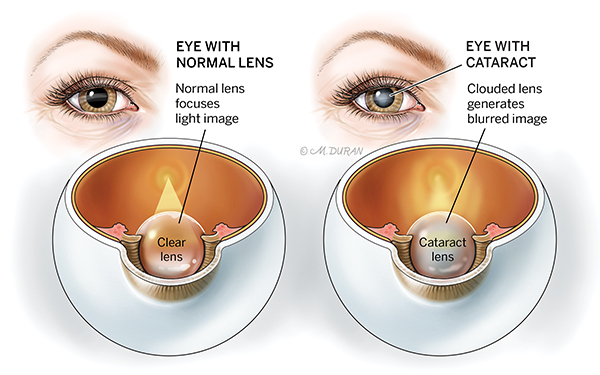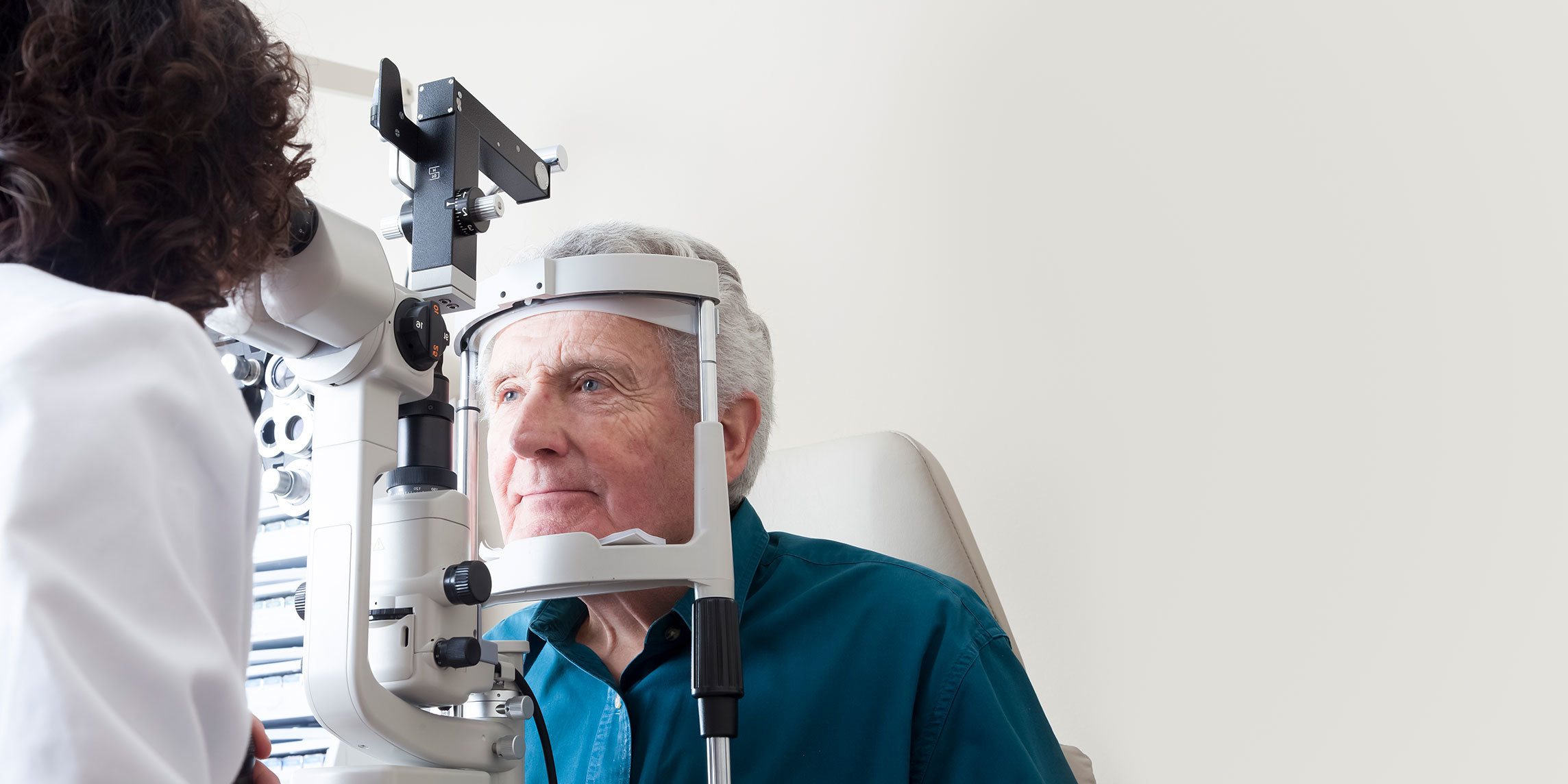About Cataracts
When you are born, your eye lens is typically clear. A natural clouding of this lens occurs with aging. Cataracts can form and not be visually significant for variable lengths of time, but surgical correction by an ophthalmologist is often needed.
Cataracts are a common condition, affecting more than 3 million patients per year in the United States. Diagnosis and treatment by an ophthalmologist may help prevent complications and restore your vision.

Types of Cataracts
Cataracts are classified by which part of the lens is affected.
Examples of types of cataracts include:
- Nuclear cataracts are cataracts affecting the center of the lens.
- Cortical cataracts are cataracts that affect the edges of the lens.
- Posterior subcapsular cataracts are cataracts that affect the back of the lens.
- Congenital cataracts are cataracts you’re born with.
Cataracts can also be caused by some underlying systemic diseases.
Symptoms of Cataracts
Most cataracts develop slowly and don’t disturb your eyesight early on. However, with time, cataracts will eventually interfere with your vision. The signs and symptoms of cataracts depend on which part of the eye lens is cloudy.
Common symptoms of cataracts include:
- Appearance of “halos” around bright lights
- Clouded, blurred, or dim vision
- Difficulty seeing at night
- Double vision
- Fading or yellowing or colors
- Frequent changes in eyeglasses or contact lens prescriptions
- Headache due to changes in vision
- Need for brighter than normal light to read or see objects
- Sensitivity to light and glare
Cataracts can also sometimes cause complications if not treated appropriately.
Complications may include:
- Increased risk of glaucoma
- Inflammation of the eye
- Vision loss
Risk Factors for Cataracts
Certain people are at greater risk of developing cataracts.
Risk factors for cataracts may include:
- Age: Cataracts can occur at every age, but typically affect those over the age of 60
- Comorbid conditions: Cataracts can be caused by systemic diseases, such as atherosclerosis, atopy, diabetes mellitus, juvenile rheumatoid arthritis, and Marfan’s syndrome
- Family history: People with a family history of cataracts are more likely to develop the condition
- Health history: Cataracts are linked to a history of diabetes or high blood pressure, past eye surgery or injury (including excessive exposure to sunlight), radiation, and long-term use of steroid medications
- Personal history: Smoking, obesity, and alcohol abuse can all increase your risk of developing cataracts
- Sex: Women are more likely to be diagnosed with cataracts than men
Interventions to help prevent the onset of cataracts include:
- Get your eyes tested regularly
- Make sure you use the correct eyeglasses or contact lenses
- Use sunglasses when you go outside
- Monitor your blood pressure and blood sugar levels
- Maintain a healthy height-to-weight ratio
Treating Cataracts at UT Health Austin
Treatment is dependent on the underlying type of cataract, the severity of your vision, and how this impacts your daily life. Your ophthalmologist is well-versed in the most current, evidence-based treatment recommendations, which may include monitoring or surgery.
Care Team Approach
At UT Health Austin, we take a multidisciplinary approach to your care. This means you will benefit from the expertise of multiple specialists across a variety of disciplines. Your care team will include fellowship-trained ophthalmologists, ophthalmic technicians, physician assistants, nurse practitioners, social workers, and more who work together to help you get back to the things in your life that matter most to you. We also collaborate with our colleagues at the Dell Medical School and The University of Texas at Austin to utilize the latest research, diagnostic, and treatment techniques, allowing us to identify new therapies to improve treatment outcomes. We are committed to communicating and coordinating your care with your other healthcare providers to ensure that we are providing you with comprehensive, whole-person care.
Learn More About Your Care Team

Mitchel and Shannon Wong Eye Institute
Health Transformation Building, 1st Floor
1601 Trinity Street, Bldg. A, Austin, Texas 78712
1-833-UT-CARES (1-833-882-2737)
Get Directions